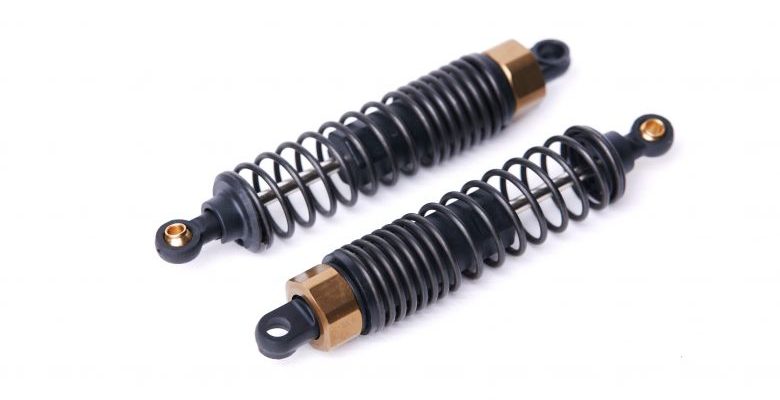When it comes to the performance of your vehicle, shock absorbers play a crucial role․ These vital components not only enhance your driving experience but also ensure safety and comfort on the road․ However, understanding the cost associated with shock absorbers can be overwhelming for many car owners․ In this article, we will delve into the factors influencing the cost of shock absorbers and what you need to keep in mind when considering replacements․
1․ Understanding Shock Absorbers
Shock absorbers are essential components of a vehicle’s suspension system․ Their primary function is to control the impact and rebound of the vehicle’s springs, providing stability and comfort during your drive․ Over time, these components can wear out, leading to decreased performance and safety issues․
2․ Factors Affecting the Cost of Shock Absorbers
The cost of shock absorbers can vary widely based on several factors:
- Type of Shock Absorber: There are various types of shock absorbers available, including twin-tube, monotube, and air shocks․ Each type has its own pricing structure, typically influenced by the complexity of design and material․
- Brand: Premium brands often come with a higher price tag due to their reputation for quality and durability․ However, budget-friendly alternatives may provide satisfactory performance at a lower cost․
- Vehicle Make and Model: The specific requirements for your vehicle can significantly affect pricing․ Luxury or performance vehicles often require specialized shock absorbers that can be more expensive than standard parts for economy cars․
- Installation Costs: Labor costs can also vary based on the complexity of the installation․ Some shock absorbers are easier to replace than others, and this can impact the overall cost․
- Aftermarket vs․ OEM: Original Equipment Manufacturer (OEM) parts tend to be more expensive than aftermarket options, but they often guarantee compatibility and quality․
3․ Average Cost Breakdown
On average, the cost of shock absorbers can range from $50 to $150 each for standard models․ Here’s a rough breakdown of potential costs:
- Budget Shock Absorbers: $50 ౼ $100 each
- Mid-Range Shock Absorbers: $100 ⎻ $150 each
- Premium Shock Absorbers: $150 ⎻ $300 each
- Labor Costs: $100 ⎻ $200 for installation, depending on the shop’s rates
4․ Signs You Need to Replace Your Shock Absorbers
Recognizing the signs of worn-out shock absorbers can save you money in the long run by preventing further damage to your vehicle:
- Excessive Bouncing: If your vehicle bounces excessively after hitting bumps, it’s a clear indication that the shocks are failing․
- Fluid Leaks: Noticeable fluid around the shock absorber indicates it’s time for a replacement․
- Uneven Tire Wear: If your tires are wearing unevenly, it may be due to faulty shock absorbers affecting the vehicle’s alignment․
- Difficulty Steering: A lack of control while steering can point to worn shocks that are not stabilizing the vehicle properly․
5․ Conclusion
Understanding the cost of shock absorbers is essential for maintaining your vehicle’s performance and safety․ By considering the various factors that influence pricing and recognizing the signs of wear, you can make informed decisions regarding replacements․ Whether you opt for budget, mid-range, or premium shock absorbers, investing in quality will pay off in the long run, ensuring a smoother, safer ride on the road․
Stay safe and enjoy your rides!
6․ DIY vs․ Professional Installation
When it comes to replacing shock absorbers, one of the most significant decisions you’ll face is whether to tackle the job yourself or hire a professional․ If you’re mechanically inclined and have the right tools, a DIY installation can save you money․ However, it’s crucial to weigh the pros and cons carefully․
- DIY Installation: This option can save you on labor costs, which can range between $100 to $200․ If you choose this route, ensure you have access to a reliable service manual for your vehicle and take your time to follow the procedures accurately․ However, improper installation can lead to further issues down the line, costing you more in repairs․
- Professional Installation: Opting for a professional guarantees that the job will be done correctly․ Mechanics have the experience and tools necessary to ensure your new shock absorbers are installed efficiently and safely․ While this option incurs additional costs, it can provide peace of mind and potentially save you from future headaches․
7․ Maintenance Tips for Longevity
To get the most out of your shock absorbers, regular maintenance is key․ Here are some tips to help extend their lifespan:
- Regular Inspections: Routinely check for signs of wear and tear, such as leaks or unusual noises when driving over bumps․
- Avoid Overloading: Stick to your vehicle’s recommended weight limits․ Excess weight can put extra strain on your shock absorbers, leading to premature wear․
- Maintain Proper Tire Pressure: Keeping your tires inflated to the correct pressure ensures even weight distribution and can reduce stress on your shocks․
- Alignment Checks: Ensure your vehicle’s alignment is regularly checked․ Misalignment can lead to uneven tire wear and increase the burden on your suspension system․










I found this article incredibly helpful! The detailed explanation about different types of shock absorbers helped me make an informed decision for my car.
This article provides a clear and concise overview of shock absorbers. I appreciated the breakdown of factors affecting their cost, which is often overlooked.
Great read! I never realized how many factors influence the cost of shock absorbers. This will definitely help me when it’s time to replace mine.
Excellent article! It demystifies the costs associated with shock absorbers and provides valuable insights for any vehicle owner.
Fantastic information! The section on aftermarket vs. OEM parts was particularly useful. I now feel more confident about my choices!